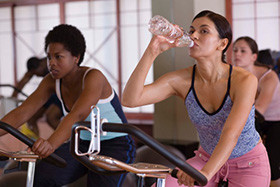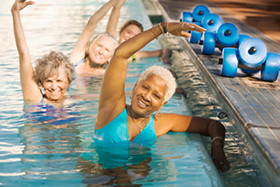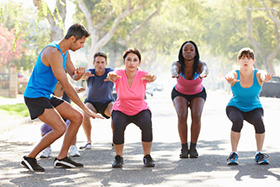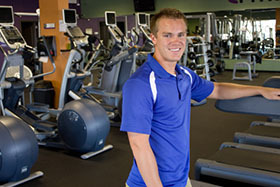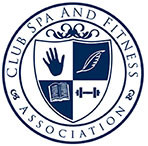Many fitness facilities require instructors to have CPR (cardio-pulmonary resuscitation), AED (automated external defibrillator) and/or first aid certification. They’re even a requirement for many fitness certifications. Even if no one is requiring you to have comprehensive first aid certifications, it’s a good idea for every fitness professional to take this training and get certified through the
Winter weather takes a toll on the exercise regimens of even the most dedicated fitness enthusiasts. Even New Year’s resolutions can crumble when faced with months on end of cold and nasty weather. If your clients are having trouble staying motivated when they’re stuck inside, here are some fun indoor activities you can recommend to help them
According to the CDC, many of the physical limitations that we attribute to aging, such as loss of strength and stamina, are actually caused by reduced physical activity. Even moderate increases in physical activity can have significant health and wellness benefits for older adults. Here are some of the ways your older clients can benefit
There have been numerous research studies on whether exercise helps improve mood in people suffering from clinical depression. A review of these studies concludes that people with mild to moderate depression can find their mood improved with regular exercise. Other studies have found that even patients with major depression can benefit from aerobic exercise. It
Wintertime may seem like the time to move exercise indoors, but that’s not a given until temperatures drop below a certain level. Here are some tips to give your clients about safely exercising outdoors in the cold to help them make fresh air a part of their fitness routine all year long. Check the wind
The whole concept of personal training is to create the ideal training regimen for each client. However, it is equally important to view all your clients as individuals even if the bulk of your training takes place in a group, team or class setting. There are a lot of variables that affect an individual person’s
As a triathlon coach, you know that training for triathlons is intense. Even with responsible, individualized training, you may end up with a client who suffers an injury and claims that your professional advice was harmful. You can cut down on the risk of that happening by making sure that your professional coaching covers all
It’s not uncommon for fitness professionals to make dietary supplements available for sale to their clients. Dietetics professionals have guidelines for the recommendation and sale of these supplements, but other types of wellness and exercise practitioners may not have thought through their legal liabilities when it comes to selling these products. According to Medical Economics,
Making exercise equipment available for the use of clients involves various responsibilities and in turn, opens you to certain legal liabilities. There are benefits and risks to the use of all equipment, including weight machines, treadmills, kettle bells, Pilates equipment, exercise balls, elliptical machines, stationary bicycles, free weights, balance beams and more. Here are some
When you are teaching your clients the basics of post-workout nutrition, these recommendations may come in handy. You could distribute them as a handout or post them on the wall for your clients. Optimizing Your Post-Workout Recovery There’s about a 30- to 45-minute long sweet spot after a workout when the body can best take
Customer Feedback
-
Thank you so much for your prompt response. Might I add, Veronica was a delight to work with and her professionalism and attention to detail made this an overall pleasurable experience.

Earl W.




